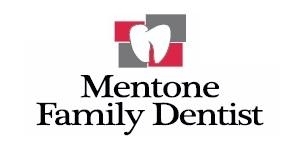What Is Ozone Therapy in Dentistry?
Ozone (O₃) is a naturally occurring molecule made up of three oxygen atoms. In dentistry, it’s harnessed in medical-grade form—not for pollution, but for disinfection and healing. Applied as ozone gas, ozonated water, or ozonated oil, this therapy is increasingly used in holistic and modern dental settings.
Unlike antibiotics or chemical agents, ozone works by oxidising pathogens—disrupting their cell walls and neutralising them—without harming healthy tissue. The result? A powerful, selective treatment with minimal side effects.
Why Ozone Is Gaining Popularity
This isn’t just hype. Ozone offers real, clinically supported benefits:
Powerful Antimicrobial Action - Ozone destroys bacteria, viruses, fungi, and biofilm—without contributing to antibiotic resistance.
Speeds Up Healing - It enhances blood flow and oxygenation, accelerating tissue regeneration after cleans, surgeries, or deep treatments.
Minimally Invasive & Comfortable - Used alongside traditional care, ozone can reduce the need for drilling, anaesthesia, or harsh chemicals.
Eco-Friendly & Sustainable - Ozone naturally reverts to oxygen—leaving no chemical residue behind.
How Ozone Is Used in Dental Clinics
Ozone is no longer considered fringe. It’s supported by systematic reviews and is used in progressive clinics around the world for:
-
Early Cavity Management – Can help stop decay and is especially useful for children and patients sensitive to drilling.
-
Root Canal Disinfection – Enhances canal sterilisation, improving treatment outcomes.
-
Gum Disease Treatment – Reduces deep-pocket bacteria to support gum healing.
-
Post-Surgical Healing – Speeds recovery and reduces complications when used as a rinse or gas.
How We Use Ozone at Our Clinic
Ozone is an integral part of our patient-first, convergence care model—where advanced technology meets whole-body wellness and environmental responsibility.
1. Surface Disinfection with Biosure™ Spray
We use food-safe ozonated water spray to sanitise clinical surfaces—eliminating pathogens while protecting patients and staff from harsh chemical exposure.
2. Ozone Air Filtration Systems
Ozone-based air purifiers remove airborne microbes during procedures like ultrasonic cleans or drilling—this is especially important in the post-COVID era.
3. Dental Water Line Protection
Our dental units are connected to ozone water generators to prevent biofilm build-up and maintain sterile water flow during every appointment.
Why this matters:
Ozone-treated water lines significantly reduce bacteria such as Pseudomonas and Legionella—a common risk in untreated dental lines. This approach also supports our compliance with AHPRA, ADA, and NHMRC infection control guidelines.
Can I use ozone therapy at Home?
Some patients are exploring home-use ozone generators for mouth rinses or oral wound care. While this can be helpful in moderation, it must be used responsibly.
Don’t Overdo It: Daily use of high-strength ozone may disturb your oral microbiome and kill beneficial bacteria.
Check with Your Dentist: Particularly important for children, pregnant patients, or anyone with chronic conditions.
Ozone is powerful—but correct usage and moderation are most important.
Is Ozone Safe?
Yes—when used professionally. Like any oxidising agent, proper dosage and delivery are essential.
Inhalation Risk: Inhaling raw ozone gas can irritate the lungs.
Avoid DIY Devices: Non-medical ozone machines may produce unsafe levels or unregulated output.
We use only TGA-approved devices and follow strict safety protocols to keep you and your family safe.
The Takeaway: A Cleaner, Smarter Future in Dentistry
Ozone isn’t a replacement for traditional dentistry—but it’s a powerful addition. For patients seeking safer, biocompatible, and eco-conscious care, ozone therapy brings many benefits.
Want to see the difference ozone can make in your dental care? Book a free consultation to learn more.

